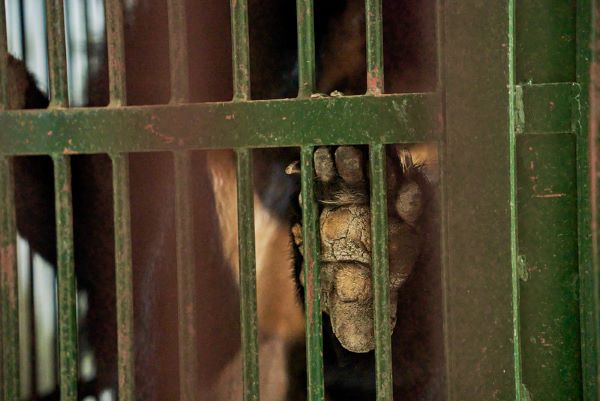- Research by World Animal Protection highlights the billions of wild animals suffering on wildlife farms, bred for pets, tourism, hunting, fashion, and traditional medicine.
- Wildlife farms place humans at risk from zoonotic diseases.
Published today, the charity’s Bred for profit: The truth about global wildlife farming report reveals for the first time the vast scale of this exploitative industry in which billions of wild animals are bred to be traded as pets, used for entertainment or tourist attractions, and turned into ornaments, luxury food, fashion products or traditional medicine (TM).
In the report, researchers found an astonishing lack of transparency and inadequate monitoring across the global multi-billion-dollar industry, where sentient animals are treated as mere components in a cruel production line. Through a long history of working across many of these exploitative industries, World Animal Protection know that large numbers of wild animals suffer from malnourishment, disease, stress-induced behaviours, injuries, infected wounds – and even cannibalism.
The report, compiled using Freedom of Information requests and other research, also details how the high numbers of animals living in cramped, unhygienic conditions put their caretakers and the public at risk of zoonotic diseases – potentially to pandemic proportions.
World Animal Protection research found very little evidence to support claims by some conservationists that breeding programmes fulfil the demand for wildlife products and reduce pressure on wild populations.
Shockingly, some captive wildlife populations are now larger than those living free in the wild.
Case studies in the report detail some of the industries where urgent action is needed – including:
- Lion and other big cat farming in South Africa – where approximately 8,000 big cats are bred at 366 known facilities and used for multiple purposes in the U$43 million industry, including for tourist entertainment, trophy hunting and body parts exports to Asia for TM.
- Bear farming in China – where some 20,000 bears are farmed for their bile on dozens of farms to sate the demand of the US$1 billion bear bile industry in China.
- Elephant breeding in Thailand – where the majority of nearly 3,000 elephants are bred in captivity and used in 246 venues for tourism, generating between US$581 to US$770 million annually. Between 2010 and 2020 the number of elephant venues increased by a staggering 134%.
Launching the global Wildlife Not Profit campaign, World Animal Protection’s Wildlife Campaign Manager, Edith Kabesiime said: “Captive Wildlife farming is cruel and devasting to the animals trapped in the practice as captured in this report that forms basis for our campaign. Whether it be for the pet industry, trophy hunting, entertainment, traditional medicine, decoration, or fashion – cruel wildlife farming must end now. Wild animals have the right to a wild life. Governments, the private sector, and consumers must prioritise efforts to ensure that wildlife is protected in their natural habitats. The public must also be guarded against the very real threat of zoonotic diseases from wildlife farms.”
Edith added: “The animals trapped in captive farming must be the last generation of wild animals farmed for profit. Wildlife is not ours to exploit, and we can all play a part in protecting animals from cruel commercial exploitation. Join us in saying no to the cruel farming of wild animals.”
World Animal Protection is urging governments worldwide to take immediate action by implementing a comprehensive and timely phase out of commercial wildlife farms and associated trade.
“Additionally, we are calling for increased support for alternative livelihoods for those communities currently involved in the wildlife farming industry, to ensure a just transition away from these harmful practices,” said Edith
Members of the public are encouraged to support our Wildlife Not Profit campaign by supporting the demand to end wildlife farming. Sign the pledge.









